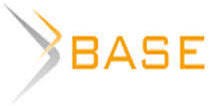BALANCED SCORE CARD AND ITS IMPACT ON INCOME IN COMPANIES IN THE AGRICULTURAL SECTOR IN ZONE 3 OF ECUADOR
The objective of this research is to analyze the Balanced Score Card and its impact on income in companies in the agricultural sector in Zone 3 of Ecuador. The hypothesis was: Balanced scorecard affects the economic and financial development of agricultural companies located in Ecuadorian territory. The methodology is quantitative, correlational, non-experimental. The population was made up of companies in Zone 3, structured surveys were used, validity through Cronbach's Alpha of each instrument, creation of indexes through Principal Component Analysis, hypothesis testing using Pearson correlation and impact testing using linear regression. and use of the STATA statistical package for data processing. The results of Pearson correlation revealed a positive average correlation of .6460. The linear regression analysis indicated that the Balanced Scorecard explains 41.74% of the variability in revenue, which means that 58.25% of the revenues of the companies in the agricultural sector are in a different type of context, The coefficient β 1 is 0.68, which implies that for each unit of increase in the BSC, revenues increase by 0.68 units.
Illapa L., Brazales D. “Balanced score card and its impact on income in companies in the agricultural sector in zone 3 of Ecuador”, Research Result. Economic Research, 10(4), 33-50, DOI: 10.18413/2409-1634-2024-10-4-0-3

















While nobody left any comments to this publication.
You can be first.